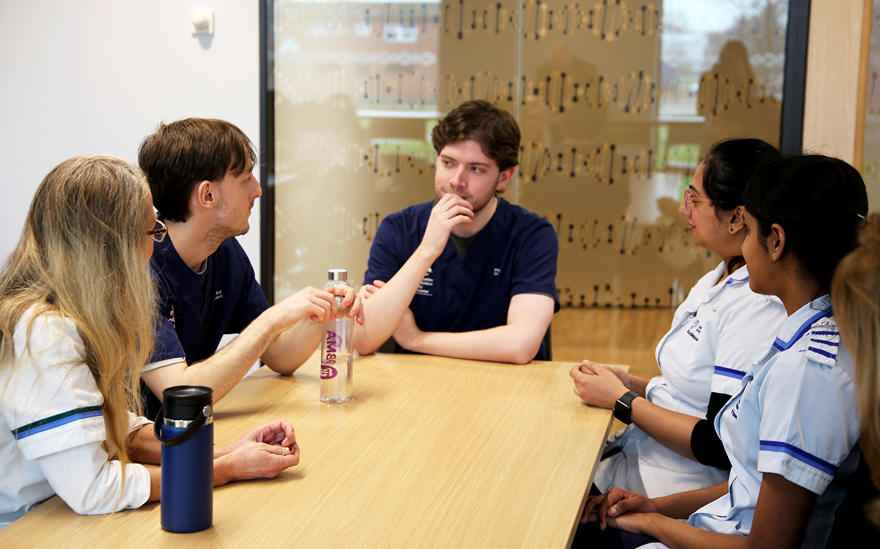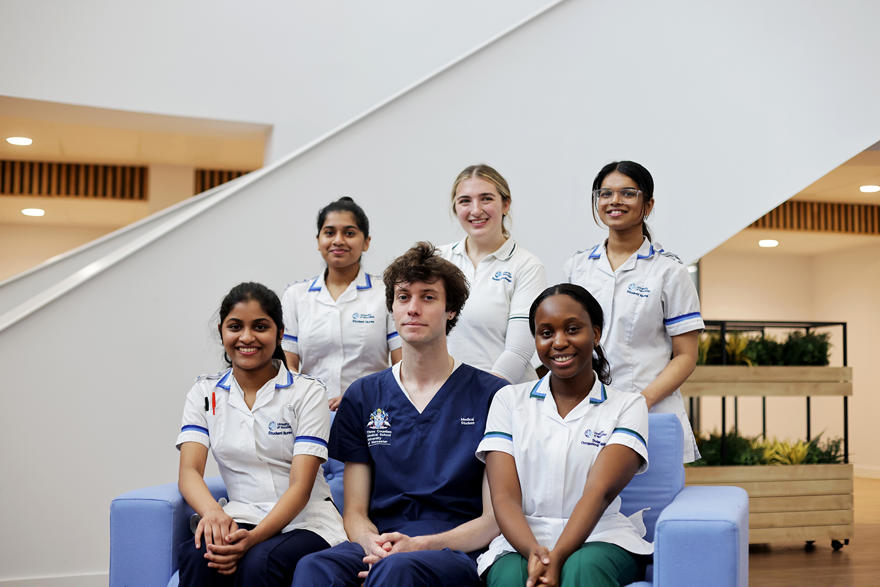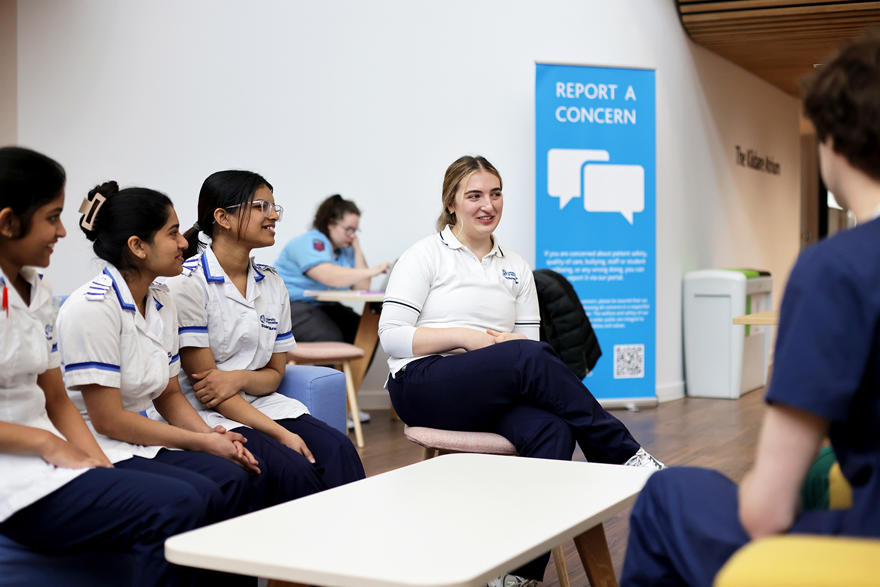How healthcare providers of the future to learn from one another at the University of Worcester
Modern healthcare practices mean there's more need than ever before for interprofessional learning. At the brand-new Elizabeth Garrett Anderson building, paramedic, nursing, occupational therapy, physiotherapy, and medical students are meeting to spend time sharing practices and experiences.
They're gaining insight into non-technical skills that can impact on the delivery of safe patient care.
Pegeen Fisher is a Senior Lecturer at the University and leads on the Interprofessional Learning Days.
She says it's vital that healthcare professionals understand and experience teamwork across disciplines and teams.
"The delivery of safe, quality healthcare is dependent on effective teamwork across many different disciplines. It's important for healthcare students to have a wider awareness of other professions to gain an insight into their role, and their areas of expertise."
Pegeen Fisher, Senior Lecturer in Pre-Registration Nursing
She says: "A vital aspect of teamwork is drawing on the expertise of the wider healthcare team, it's a fundamental aspect of modern healthcare and it's of relevance from the very beginning of the students' journey."

In practice, interprofessional learning sees students attend lectures as a mixed group of disciplines, and then work in smaller groups to exchange stories, ask questions of each other and discuss everything from what placements are like to what motivated each other into their chosen discipline.
It's different to the majority of their lectures, as medical students chiefly spend their time around other medical students, and the same goes for those studying to be occupational therapists and so on.
But this won't be the case when they go on placement and into the world of work.

Aaron Collins is a Tutor in Paramedic Science at the University. His students take part in interprofessional learning days.
"Effective collaboration between paramedics and other healthcare professionals leads to better patient care. When paramedics work closely with doctors, nurses and other specialists, they can ensure that patients receive comprehensive and timely treatment."
"Strong relationships between paramedics and other healthcare workers is key to positive mental health and job satisfaction, and it plays a key role in teamwork which in turn produces a positive patient outcome."
Aaron Collins, Tutor in Paramedic Science
Aaron points out that this understanding helps patients directly when they come into contact with ambulance services.
"It means paramedics can explain what the process is potentially going to be when the patient is admitted to hospital, and they can explain these processes to patients and their families directly."
The communication and conversation fostered on these days isn't just about enhancing the learning experience, it's designed to make a difference on wards, A&E departments, and healthcare settings across the country.
Pegeen Fisher says: "Interdisciplinary work like this ensures that when patients get access to specialist care, the handover of care between specialties is comprehensive and safe. It also enhances the working environment."

Healthcare students do see other disciplines and professions while on placement, but spending time together in a dedicated form like an interdisciplinary learning session means they can take some time to explore each other's remits in more depth, and it's of huge value to the students' learning and ongoing clinical practice.
"Students from all disciplines evaluate interprofessional learning days very favourably, particularly gaining insight into each other's roles and breaking down professional barriers," says Pegeen.
She adds: "The faculty are keen to widen participation to include more University of Worcester Healthcare courses, to ensure the flow of knowledge and information between people of different medical specialisms happens in a way which benefits healthcare professionals and their patients."
Find out more about studying at Worcester